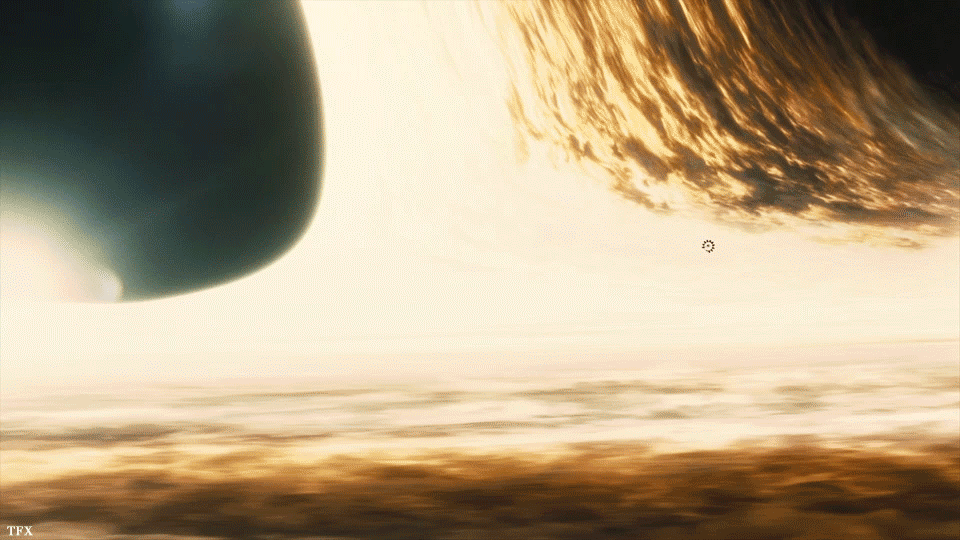It’s hard to look at Ad Astra and not think of Interstellar. Both films are set in the not-so-distant-future, one that is plagued by something threatening the existence of humanity. Interstellar was pretty straight forward with the whole “we ran out of food” dilemma, and while Ad Astra touches on natural disasters (in a way), the problem motivating its protagonist (Brad Pitt) is a bit more personal.
Both science fiction epics follow astronauts as they venture to the far reaches of space. Their journeys are dramatic, thrilling and prophetic. If science’s role in society is to make our sci-fi dreams a reality, then these films inform our future. Let’s pit these cinematic fortune cookies against one another. Warning: major spoilers for both Interstellar and Ad Astra ahead!
Cover Photo: 20th Century Fox
Sci-fi: 5 Things The Chinese Won’t Find On The Far Side Of The Moon
Face-off: Tarantino Heavyweights ‘Pulp Fiction’ vs. ‘Once Upon a Time in Hollywood’
Audiences aren’t going to connect with Ad Astra the way they did with Interstellar when it came out. Where the latter is loud, thrilling and action-packed, the former is subtle, poignant and psychological. This does not necessarily make Interstellar a better movie, however, it most certainly makes it more entertaining. Didactic character studies are all well and good, but no one has rewatched Taxi Driver 20 times (or maybe you have). Interstellar‘s ambition, sound, and style win the day.
Overall Winner: Interstellar
Follow Mandatory on Facebook, Twitter, and Instagram.
Mandatory Movie Battles: Ad Astra V. Interstellar
-
The Mission

While both stories revolve around an existential crisis of sorts, Ad Astra only briefly touches on the stakes of Clifford McBride’s (Pitt) mission. Interstellar, on the other hand, constantly reminds us of the stakes—the Earth is dying. If our heroes find another habitable planet they can either A) solve a convoluted gravity equation and bring everyone back home there or B) give up on those they have left behind and use frozen human embryos to colonize their new home.
Interstellar lingers on the possibility that humanity may have no future, that its protagonist (Joseph Copper) may never see his family again, and that space is an unnavigable frontier. Ad Astra chooses to focus more on the relationship between father and son. This makes it more intimate and condensed but also the mission seems like a moot point.
Winner: Interstellar
-
Family Member in Peril

Interstellar’s Cooper just wants to save the world and get back to his daughter (because she’s his favorite child) and Ad Astra’s McBride wants answers. Cooper’s relationship with Murph is one of the most powerful aspects of their respective movie; both actors do one of hell of a job. Real heartache is felt when Matthew McConaughey cries his eyes out at the height of his McConaissance.
In Ad Astra, mysterious power surges are threatening the stability of our solar system (and again, human life). These surges are traced back to an expedition led by the main character’s father 30 years prior. That mission, deemed “Lima Project,” was created in order to search for intelligent life, wherever in the galaxy that may be. However, there has been no word from that crew since reaching Neptune. It becomes Roy McBride’s mission to establish communication with his father.
The journey here hearkens back to films like Apocalypse Now (inspired by Heart of Darkness by Joseph Conrad). The main character spends the entire story waiting to connect with a larger-than-life figure, only to realize that figure has lost touch with their own humanity. Confronted with a twisted philosophy, McBride is forced to make resonant decisions concerning his own existence. It's a how-to manual for overcoming daddy issues.
Winner: Ad Astra
-
Cast

Sure, there are other actors and actresses in Ad Astra, but they might as well be extras. Brad Pitt is its heart and soul. His minimalist and nuanced performance of a withdrawn man aches with self-realization.
The character of Roy McBride is a grounded one: he’s insecure, afraid, and has some serious abandonment issues. By the end of the film, he comes to know himself and recognize his mistakes. It’s a damn near perfect character arc; however, it’s the only arc. Interstellar has other performances in it besides Matthew McConaughey’s; Anne Hathaway is fantastic as Amelia Brand, Jessica Chastain is riveting as always, Mackenzie Foy is awesome as young Murph, and Matt Damon pretty much steals the show as the physical embodiment of evil.
Winner: Interstellar
-
Score

Hans Zimmer may be the best film composer of all time. Whether you remember being curled up on the couch fist-bumping while Christian Bale embodied the “hero we deserve,” drinking your favorite rum while Captain Jack Sparrow docked his slowly sinking ship, or crying profusely while Scar murdered Mufusa, you know Zimmer. Interstellar’s score is just as iconic—loud, all-encompassing, and mood-affecting. It’s original and distinctive.
Dev Hynes does a fantastic job composing Ad Astra; he uses archival sound from actual space missions and radio emissions to make the film feel as ominous as possible. Against any other film, Ad Astra’s score may have been triumphant, but not Interstellar and not Hans Zimmer.
Winner: Interstellar
-
The Science

Caltech physicist Kip Thorne served as a science advisor on Interstellar. Thorne even wrote a book entitled The Science of Interstellar which provides scientific explanations for the movie’s more complicated parts. It may seem all over the map at times, but Interstellar’s vision is admirable. Thorne reveals that the story was built upon science from the ground up, even visually. Interstellar’s Gargantua (the massive black hole they travel through), is the most accurately depicted black hole in cinematic history (and damn is it beautiful).
During the making of Ad Astra, many ex-astronauts and technical advisers were on set. All of the movie’s set pieces make sense and look legitimate; however, conceptually, nothing can compete with Interstellar’s ambition.
Winner: Interstellar
-
Visuals

Both of these movies share the same cinematographer, Hoyte Van Hoyte (who has worked on a bunch of Christopher Nolan films). Ad Astra’s director, James Gray, aimed to create the most realistic space epic in recent memory; in regard to realism, Gray succeeds. Gray approached Hoyte because he wanted to get technical like Interstellar but in a very different way.
Visually, Ad Astra is unique: the film is poetic and intimate like wet paint on a canvas; there’s something tangible about it. Interstellar is an over-the-top, in-your-face opera. Ad Astra feels and looks real. Its visuals are just familiar enough to warrant the unfamiliar. It is in this way that Ad Astra never loses its audience.
Winner: Ad Astra
-
The Message

Ad Astra’s title comes from the Latin phrase meaning “through hardships to the stars.” Interstellar’s title is self-explanatory, as is its message. There’s only one thing that can motivate, inspire, and persevere: love. Cooper succeeds in Interstellar because of the love he has for his daughter, the love they share. It overcomes all the obstacles in his path, even science.
Ad Astra takes this message a step further: appreciation and humility equal success. Throughout the film, the viewer gets to know Roy McBride via various Brad Pitt voice-overs. Between these and the character's periodic psych evaluations, we get to understand his flaws. Make no mistake; Roy McBride is not Joseph Cooper. He’s not considerate or courageous in the way that McConaughey’s character is.
McBride, like his father, craves more. Upon finding his father (who spent 30 years looking for extraterrestrial life to no avail), McBride comes to terms with the truth—life doesn’t have to be about discovering something in the “stars.” If the universe is empty, and we are alone, then the greatest, nigh, the hardest discovery we can make is directly in front of us. Let’s start taking care of each other.
Winner: Ad Astra









